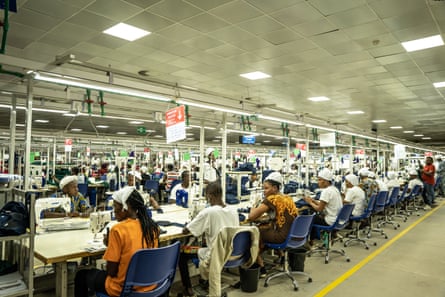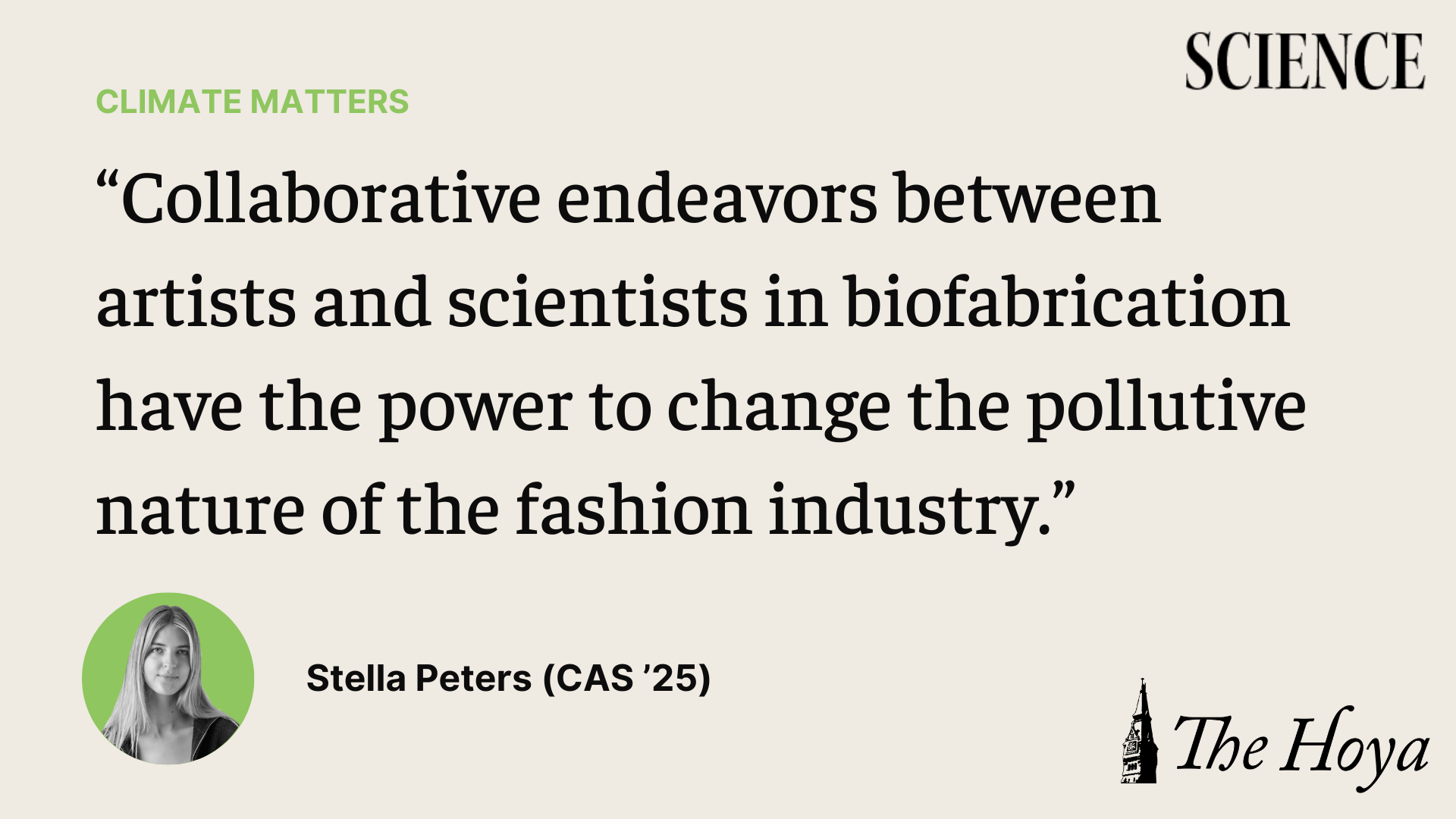When Muriel Akouewanou finished her studies in natural sciences in Benin, she struggled to find work and was unemployed for two years. Then, she saw an advert on TV. Textile factories were being built in a new industrial zone, 28 miles from Cotonou, the city where Akouewanou, 24, lived with her parents, and they needed workers.
“To be honest, it didn’t appeal to me,” she says. “It was something I’d never done, I’d never worked with machines.” Nevertheless, she applied, and was accepted on to the six-month training scheme.

To her surprise she enjoyed the work. Now, her salary covers all her expenses and allows her to give some money to her parents. Her dream is to become a textile engineer in Benin’s emergent industry.
In the past few years, Benin has become Africa’s leading cotton producer, with annual production of 728,000 tonnes in 2020-2021, according to government figures. Traditionally it has exported almost all of that raw, with most of it going to Bangladesh.
An initiative between the Republic of Benin and Arise Integrated Industrial Platforms, a pan-African venture partly owned by the Africa Finance Corporation, is under way to create jobs and revenue. It aims to process the cotton, as well as other agricultural products, locally, with the goal of exporting finished goods, such as T-shirts and underwear, to Europe, Asia, Africa and the US.
“Benin is an agricultural centre, a country that produces a lot of agricultural commodities – cotton, shea, cashews, soya, pineapple. But most of these crops used to be sold raw without any transformation,” says Letondji Beheton, managing director of the Glo-Djigbé industrial zone (GDIZ), which houses the textile factories. “In 2016 the new president wanted to [transform the Benin economy]. Instead of selling commodities raw, we will process them in Benin.”

The initiative aims to create 300,000 jobs by 2030; up to 250,000 jobs are expected in spinning, cotton weaving and garment manufacturing. It expects to increase exports by $5bn to $10bn (£4.15bn to £8.3bn) within 10 years, GDP by $4bn to $7bn (£3.3bn to £5.8bn) by 2030, and Benin’s manufacturing output fivefold.
Beheton says 36 investors have already signed a contract with the zone. Regarding the growing textile industry, there is a contract to supply 50,000 T-shirts to US brand The Children’s Place. There have been discussions with other brands including SanMar, H&M and Zara.
The impact of this initiative on the country could be huge, say trade experts. Benin is classified by the UN as one of 46 least developed countries in the world “confronting severe structural impediments to sustainable development”; close to 40{5e37bb13eee9fcae577c356a6edbd948fa817adb745f8ff03ff00bd2962a045d} of the population lives below the poverty line.

“The textile industry has been, and is, in many countries the starting point for industrialisation,” says Matthias Knappe, the programme manager for cotton, textiles and clothing at the International Trade Centre. The textile industry has been selected as a priority by the African Union, he says, because it’s a sector where you can create a lot of jobs relatively easily. “It’s a very good and timely initiative.”
Jodie Keane, a senior research fellow at the ODI thinktank, says the textile industry has “been the quintessential foothold into the industrialisation process … this strategy was pursued by east Asian newly industrialised countries (Hong Kong, Singapore, South Korea and Taiwan) and it has lifted millions out of poverty”.
Knappe adds that Benin’s position on the west coast of Africa could be a logistical advantage for buyers in the US, Europe and Africa, as products won’t have to be shipped so far. And, African cotton has an environmental edge. “It’s all rain fed so there’s no irrigation, tapping into rivers, lakes and underground water like in some other major cotton producing countries. Also, pesticide and chemical use is much lower,” says Knappe.

There are challenges ahead, however. Research carried out by Cotton 2040, a cross-industry platform, estimates that, by 2040, about half of the world’s cotton growing regions will face high or very high-risk exposure to at least one climate hazard, while some regions could be exposed to as many as seven.
Knappe adds: “This is business, it’s trial and error, it could go wrong anywhere.” Another pandemic could bring disaster with cancelled orders, for example, or if there were a political crisis the country would risk losing trade preferences from the US.
As consumers become more environmentally and socially conscious, brands are putting pressure on suppliers and manufacturers. The European Commission has formulated a textile strategy which has sustainability at its core and will put conditions on products entering the EU.
after newsletter promotion

Between 50 and 70{5e37bb13eee9fcae577c356a6edbd948fa817adb745f8ff03ff00bd2962a045d} of power needed by the zone will be provided by renewable energy, says Beheton. A solar plant is being built over the next three years, and solar panels will be placed on the warehouse roofs. The remainder will come from a new power plant and gas pipeline later this year.
The textile industry has been plagued by human rights abuses, from sexual assault in jeans factories in Lesotho to the collapse of Rana Plaza in Bangladesh in 2013, that killed more than 1,000 people. It occurred after workers’ concerns about the safety of the building had been ignored.
Natalie Swan, the labour rights programme manager at Business & Human Rights Resource Centre, says that each time the industry shifts to an emerging market, there’s “a wild west in terms of a lack of unionisation, and a legal framework that gets exploited”.

A quick look online will show Benin as the next destination for garment manufacturers because of “a plethora of advantages in terms of low-cost labour”, she says. “This is how it’s being marketed, this is part of the same exact story that we’ve seen for the last 25 years, but a new frontier is the African continent.”
Beheton says workers are paid more than the minimum wage in Benin along with other benefits such as a free lunch and an onsite nursery. “There is nothing untoward happening here,” he adds.
Meanwhile, about 12 miles from Bohicon, a town about two hours’ drive from Cotonou, is Houegnonkpa, a village where houses are made of mud, cooking is done on the ground over an open flame, and there is no running water or electricity. The community is dependent on growing cotton. Raphaël Dovonon, 40, grew up helping his father in the cotton fields near his village, and now has his own land. With the money he made from farming the crop he has been able to build his own house.

The most recent harvest was bad, he says. He has noticed changes in the weather in recent years. “Things are not the same as in the past. Before, we knew when the rainy season would begin and end. Now it’s different.”
He has heard about the factories close to Cotonou which may end up using the cotton he grows to make clothes. “We are very happy that our cotton will be used in Benin and that young Beninese will get employment,” he says.
For the time being, his fortunes won’t change, however. The price of cotton is determined by a body representing farmers and the government. “Cotton farmers’ lives will not automatically improve,” says Knappe. For change to happen, “it needs political will”.

